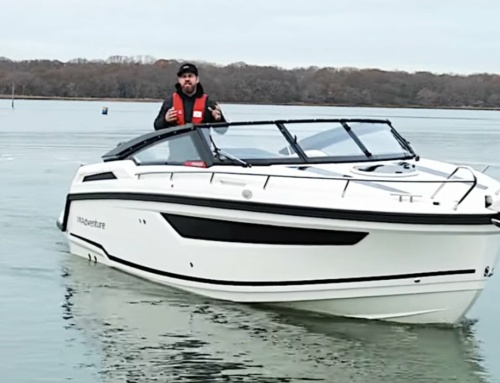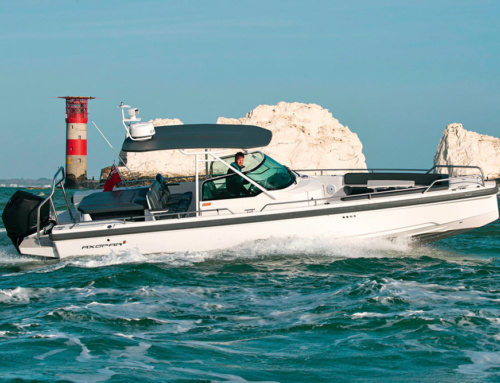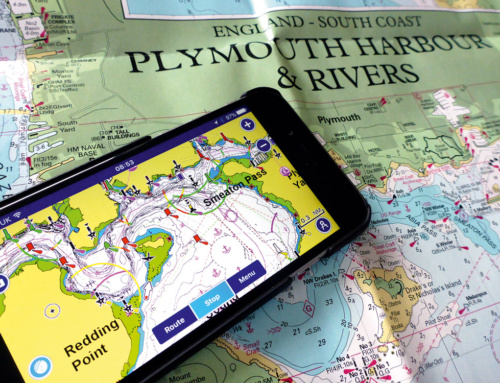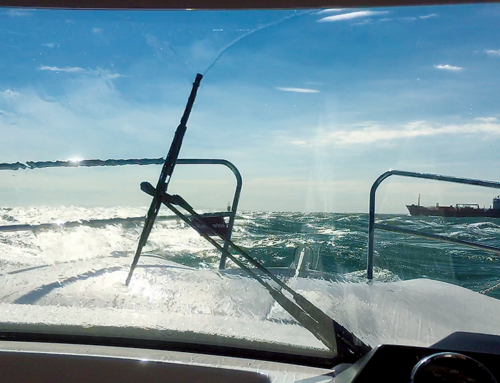Purchasing a boat can be a source of immense pleasure and lead to endless hours of waterborne rewards. But an unwise decision to buy can bring frustration and regret. Paul Glatzel provides some key advice …
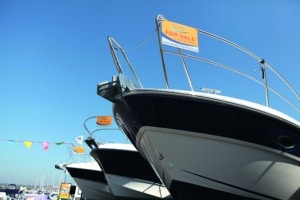 Every year I get to drive great boats that new owners should be, and are, delighted to be the proud new owners of. They get out and use the craft, family members come to love boating and the cost of ownership seems negligible compared to the huge enjoyment being a boater brings. Equally, though, every year I spend time sitting on boats that break down repeatedly, become a never-ending drain on the owner’s cash and leave a sour taste over everything to do with boating. So how can you make sure you become one of those happy owners and get to spend your hard-earned time and money enjoying your boat?
Every year I get to drive great boats that new owners should be, and are, delighted to be the proud new owners of. They get out and use the craft, family members come to love boating and the cost of ownership seems negligible compared to the huge enjoyment being a boater brings. Equally, though, every year I spend time sitting on boats that break down repeatedly, become a never-ending drain on the owner’s cash and leave a sour taste over everything to do with boating. So how can you make sure you become one of those happy owners and get to spend your hard-earned time and money enjoying your boat?
The challenges you will face when buying a boat will vary according to whether you are purchasing a new boat or a ‘new to you’ boat. Irrespective of what you are buying, following a few well-trodden paths may make your experience more enjoyable and less expensive.
Start by spending a little time becoming clear on what you and the family really want from a boat. Do you want to ski or fish (or both)? Do you want to use the boat the whole year round or just when it is warm? If it is an open boat, do you have the warm and waterproof clothing you will undoubtedly need if you choose to use it when it is that bit colder or will you need to buy it? Is petrol available shoreside where you boat or would diesel be easier?
The list of questions can be long, but by jotting them down and starting to analyse which boats will suit these needs you will reduce it to a shorter one. This is where sound advice from either existing owners, dealers or people such as powerboat instructors is useful. Dealers and existing boaters will have a good range of views, but these may be coloured by the boats they own or sell. Instructors can be handy sources of information as they will usually have been exposed to a whole variety of boats and can be totally objective. They are aware of the pitfalls and can advise you accordingly. If the timing works, then boat shows can be great whether you are looking at new or older boats. Just wandering around looking at the layouts and styles of craft really helps to crystallise thoughts. The other way to become a more educated buyer is to undertake an RYA Level 2 Powerboat Course. Doing one of these in an area or marina where there are lots of boats will expose you to a whole range of craft and give you some additional ideas as to what may suit you.
Generally speaking, if you are buying a new boat, the mechanical side of things should be covered by a pretty good warranty. Make sure, though, if buying new that the engine you choose is sensibly matched to the boat. Too large and thirsty and it could be hugely expensive to run and a challenge to sell if you need to; too small and you may struggle to ski behind it or even to get it up onto the plane if the vessel is fully loaded. Again some impartial advice may be really valuable. Web forums, of course, can be extremely helpful, but take everything you read with a healthy degree of cynicism, and remember that the person who is most opinionated and loud is probably the least experienced.
If buying second-hand, you need to be really careful to ensure that you get a good example. Take your time to research the boat you are looking at and learn what its particular area of weakness may be. Generally hulls will outlast you, but ensure that decks are sound, and particularly that if they have been screwed into, this hasn’t led to a rotten deck. Much older boats can succumb to soft, spongy decks, which are likely to cause real issues over time.
To get a feel for how well the boat is made, get your head into the hidden bits of lockers and look at the way that the electrics are tidied. If cables are neatly tied and routed and the hidden areas look really sound, it is a reasonable assumption that the builder has applied the same degree of care across the rest of the boat. Conversely, a mess in these hidden areas is likely to indicate a pretty slapdash approach elsewhere too.
If there are any stress-related cracks in the fibreglass, you need to get to the bottom of why they are there. Some won’t really matter and are easily fixed by a GRP specialist, but those in areas such as the transom could be more expensive to sort and may indicate a far bigger issue. Take care to look at the hull closely and try to discern any impact damage – a surveyor will look at this properly.
 The part of the boat that causes most issues and most cost is, of course, the engine. Newer engines will be covered by a warranty, so just make sure that the engine has been serviced according to the manufacturer’s requirements or else there is a danger that the warranty may be voided. To do this, check invoices, and if you feel it necessary, take the serial number to a dealer so that they can check the engine on the manufacturer’s system. If the engine is anything other than new, you will want to get it professionally looked at. My recommendation would be not to use a surveyor that purports to do engines too, but get a recommendation from someone that services that type of engine and pay them to assess it. While a surveyor will give you a written report, a marine engineer will rarely do so, but their knowledge is generally so much greater that this is a price worth paying. Wherever possible, go afloat and test the engine under load too, as this can sometimes show up issues that are not readily obvious when testing the craft ashore. Expect to pay anything from £150 to £300 for this assessment. When looking at engines, don’t worry too much about engine hours as apart from busy commercial craft, boats rarely have anything other than low hours. Somewhat ironically, older craft with very low hours may seem a bargain, but the opposite may be true as they could have been sat around not doing anything and getting damp, which may store up issues for you. Each craft will need to be looked at on its merits.
The part of the boat that causes most issues and most cost is, of course, the engine. Newer engines will be covered by a warranty, so just make sure that the engine has been serviced according to the manufacturer’s requirements or else there is a danger that the warranty may be voided. To do this, check invoices, and if you feel it necessary, take the serial number to a dealer so that they can check the engine on the manufacturer’s system. If the engine is anything other than new, you will want to get it professionally looked at. My recommendation would be not to use a surveyor that purports to do engines too, but get a recommendation from someone that services that type of engine and pay them to assess it. While a surveyor will give you a written report, a marine engineer will rarely do so, but their knowledge is generally so much greater that this is a price worth paying. Wherever possible, go afloat and test the engine under load too, as this can sometimes show up issues that are not readily obvious when testing the craft ashore. Expect to pay anything from £150 to £300 for this assessment. When looking at engines, don’t worry too much about engine hours as apart from busy commercial craft, boats rarely have anything other than low hours. Somewhat ironically, older craft with very low hours may seem a bargain, but the opposite may be true as they could have been sat around not doing anything and getting damp, which may store up issues for you. Each craft will need to be looked at on its merits.
In terms of getting a surveyor to look at the vessel, for vessels over 10 years old this is almost always required by the insurer when it is over a certain value. The nature of surveying today is that reports tend to almost go over the top to protect the surveyor from accusations that they have missed something. It may be worth reading the report alongside someone who understands boats but who is objective in the process – an experienced boater or perhaps an instructor as they can highlight the key points for you. It’s pretty unlikely any older boat will get a totally clear survey, and unless there are major issues this shouldn’t be too much of an issue. Expect to pay £250 to £500 for a survey. Ask online for recommendations and speak to local boat dealers. Chat to the surveyor and see how you click with them and how they are likely to approach the survey before deciding who to spend your money with.
One often overlooked area is the trailer for those craft that live on one as it’s easy to focus on the boat/engine and forget the bit underneath. Anything other than a boat of about 4 to 5 metres will need to be on a braked trailer, so you should expect to see brake cables running from the area of the tow hitch to the brake drums. Whether they work is a different matter! As a start, jack up a wheel and rotate it; if it sounds ‘graunchy’ the bearings may be worn and it is pretty likely that the brakes are iffy too. Prise the cap off at the centre of the wheel and check the grease; if it is really dirty, there is none or there is lots of water, this confirms a probable issue with the bearings. There is no easy way to test the brakes and towing a trailer without brakes is illegal and can cause you major issues with the police. Servicing the bearings and the brakes is likely to cost £250 to £400. Beware, too, American sports boats on non-legal trailers – these can only be used for launching and can’t be towed with.
When I have bought boats, what I really liked to see was lots of invoices, manuals and plenty of history. If you get a nice file of these, that’s a really big tick in the yes box as it tends to suggest a careful owner.
There are plenty of places to buy a boat – from eBay to marine websites to brokers. With brokers, chat to them and get opinions from the forums. Many brokers will have started their boating just like you and are doing it because they love boats, so their advice can be really useful. Don’t be pushed in any direction, though, and do what feels right for you.
Some of these recommendations I’ve made assume that the boat that you are looking at is near a marina and a variety of marine professionals to assist you in your search. Of course, this may not be so, but even in fairly out-of-the-way places there will sometimes be marine engineers, and of course you can pay them to travel if necessary. Chatting through with experts over the phone can be hugely valuable. Most won’t charge, but even if they do it can be money really well spent.
Finally, a rule about buying a boat that I learnt long ago is that if it feels wrong it probably is. Never hesitate to go with your gut feeling when it is saying no. Your gut is rarely wrong. Have fun!

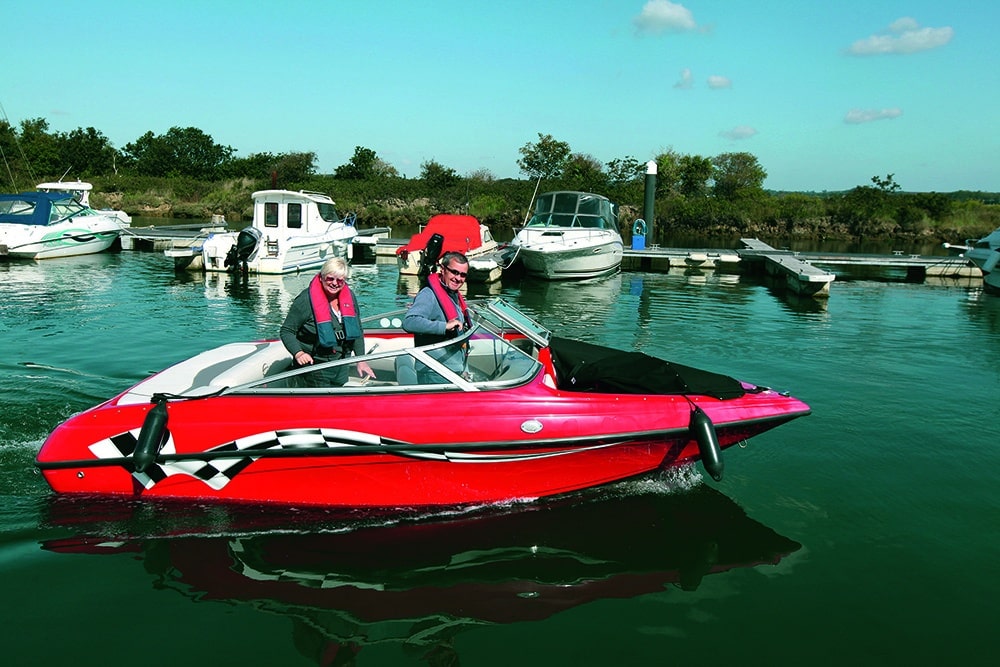
 Paul Glatzel is an RYA powerboat trainer and wrote the RYA Powerboat Handbook and the RYA Advanced Powerboat Handbook. He runs Powerboat Training UK in Poole and Lymington (www.powerboattraininguk.co.uk) and is an advisor for the RNLI.
Paul Glatzel is an RYA powerboat trainer and wrote the RYA Powerboat Handbook and the RYA Advanced Powerboat Handbook. He runs Powerboat Training UK in Poole and Lymington (www.powerboattraininguk.co.uk) and is an advisor for the RNLI.
